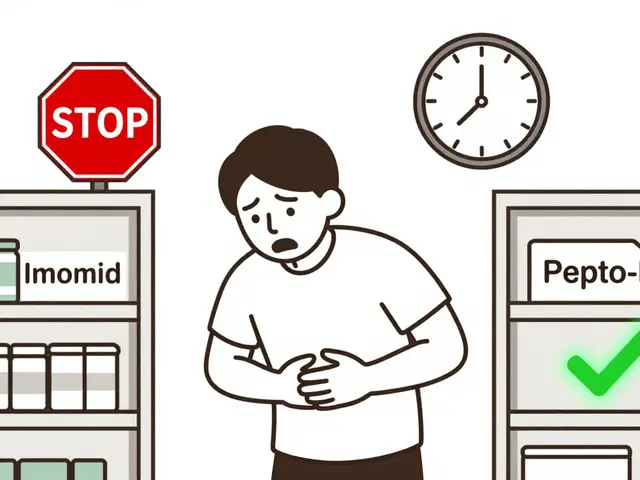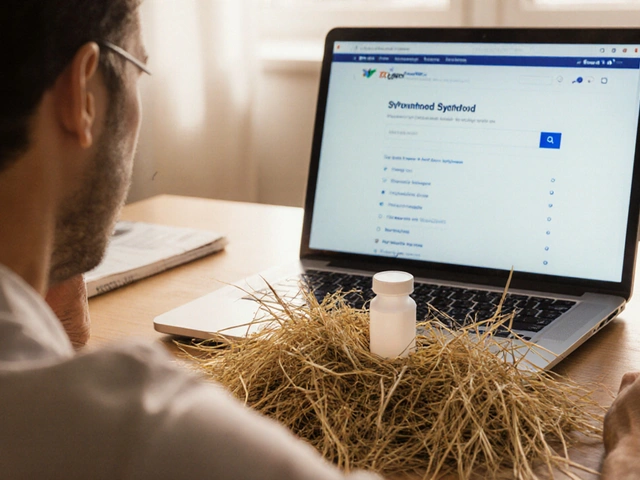Laminaria (Sea Kelp): Quick Health Overview
If you’ve ever seen a long, leafy sea plant in a sushi bowl, you’ve probably met laminaria. It’s a type of brown kelp that grows in cold oceans and has been used in traditional Asian cooking for centuries. Today, people take laminaria extracts as a supplement because the plant packs a lot of minerals and a few special compounds that can support the body.
When you hear the word “kelp,” you might think of salty ocean water, but laminaria is actually low in sodium and high in iodine—an essential mineral for thyroid health. Besides iodine, the seaweed delivers potassium, calcium, magnesium, and trace metals that help keep muscles, bones, and nerves working properly.
Top Benefits of Laminaria
One of the biggest reasons people reach for laminaria is to support thyroid function. Iodine is the key ingredient the thyroid needs to make hormones, and a modest daily dose of kelp can fill a gap if your diet is low in fish or dairy.
Another popular benefit is weight management. Laminaria contains fucoidan, a fiber‑like substance that can slow carbohydrate absorption and keep you feeling full longer. Some users notice fewer cravings when they add a small kelp tablet to their morning routine.
Blood sugar control also shows up in the research. Fucoidan and other polysaccharides in laminaria may help improve insulin sensitivity, which can be handy for people watching their glucose levels.
Heart health gets a boost, too. The potassium in kelp helps balance blood pressure, while the antioxidants protect blood vessels from oxidative stress. A couple of weeks of consistent use often translates into steadier blood pressure readings.
Finally, the mineral blend works as a natural detox aid. The algae’s alginate fibers can bind to heavy metals in the gut and help flush them out, reducing overall toxin load.
How to Choose & Use Laminaria Safely
Start with a low dose—about 150 µg of iodine per day is enough for most adults. A typical kelp capsule or powder provides this amount, but always check the label. Jumping to a high dose can overwork the thyroid and cause symptoms like jitteriness or a rapid heartbeat.
Look for products that mention “tested for heavy metals.” Because laminaria absorbs minerals from the ocean, it can also pick up unwanted contaminants. Reputable brands usually provide a certificate of analysis, so you know the product is clean.
If you have a thyroid condition, talk to your doctor before adding kelp. Too much iodine can worsen hyperthyroidism, while not enough can keep hypothyroidism from improving. Your clinician can help you find the right balance.
Take the supplement with food. The minerals absorb better when the stomach isn’t empty, and you’ll avoid any mild stomach upset that some people feel with raw kelp powder.
Pregnant or breastfeeding women should be extra cautious. Iodine needs rise during pregnancy, but you still want to stay within recommended limits. A prenatal vitamin that already includes iodine may be enough, making extra kelp unnecessary.
Store your laminaria in a cool, dry place. Moisture can degrade the powder and cause clumping. If you use capsules, keep the bottle sealed to protect against humidity.
Track how you feel. Within a few weeks, you may notice steadier energy, fewer hunger pangs, or a calmer mood. If you experience thyroid‑related symptoms, cut back or stop and consult a health professional.
Overall, laminaria is a simple, natural way to boost mineral intake and support several body systems. By choosing a clean product, starting low, and listening to your body, you can enjoy its benefits without the guesswork.



